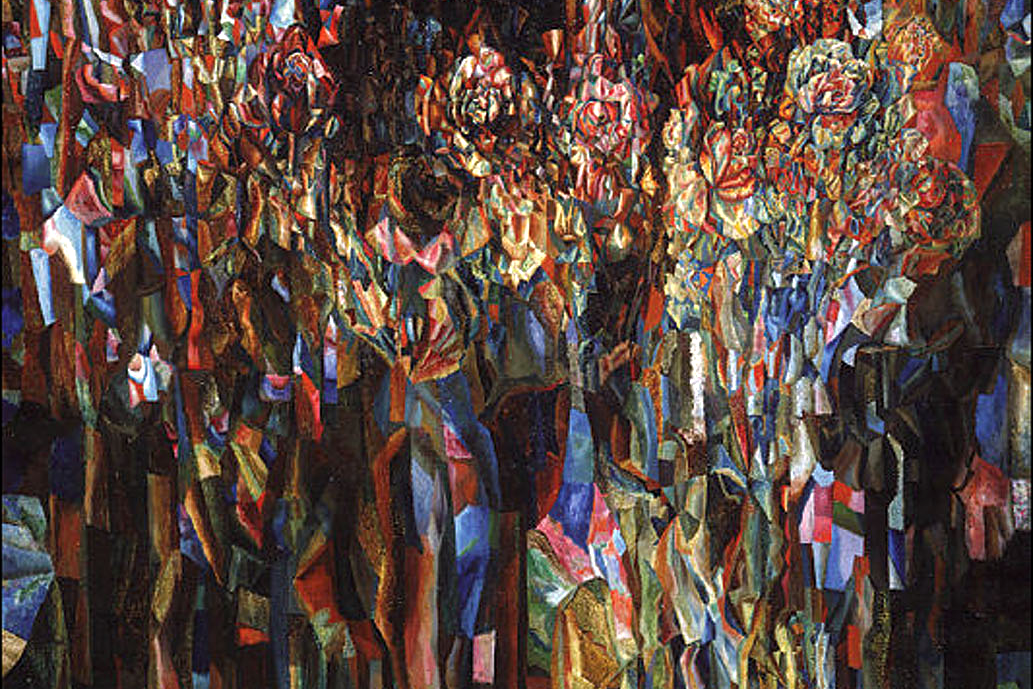Het relatief jonge filosofische debat over creativiteit behandelt voornamelijk kunstzinnige en wetenschappelijke toepassingen van creativiteit. Yanni Ratajczyk (Centrum voor Ethiek) toont in zijn proefschrift met verschillende voorbeelden aan hoe creativiteit ook moreel van tel is. Denk bijvoorbeeld aan de vele initiatieven die ontstonden tijdens de COVID-19 pandemie, waarin creativiteit gebruikt werd in verband met zaken waaraan we waarde hechten. Zo introduceerden we nieuwe begroetingsvormen om sociaal contact in stand te houden en organiseerden we digitale etentjes om vriendschapsbanden aan te halen. Dit zijn geen historisch ongeëvenaarde handelingen. Het zijn concrete, soms kleine, innovatieve handelingen die voelbare morele verbetering brengen binnen een specifieke context. Daarom spreekt Yanni in zijn proefschrift over ‘contextueel-innovatieve’ morele creativiteit. (Tekst: Yanni Ratajczyk)
Morele creativiteit is verbeelding in actie
“Ik verhelder wat morele creativiteit is en hoe het werkt”, zegt Yanni. “Ik beschouw morele creativiteit als verbeelding in actie, die zowel exploratief als experimenteel van aard is. Enerzijds gebruiken we verbeelding om situaties te doorgronden, mogelijkheden te ontdekken en het unieke karakter van andere personen te bevatten. Anderzijds experimenteren we: we improviseren, proberen dingen uit en reageren op gebeurtenissen of handelingen van anderen.”
Creativiteit is een filosofisch onderschat moreel instrument, waarmee we spontante onverwachte oplossingen realiseren die morele verbetering brengen.
Yanni Ratajczyk
Iris Murdoch en John Dewey als bondgenoten
Hoewel er weinig filosofisch werk bestaat over morele creativiteit schreven verschillende filosofen interessante zaken over de morele rol van verbeelding. Yanni: “Ik geef mijn idee van morele creativiteit vorm met Iris Murdochs en John Deweys ideeën over morele verbeelding. Hoewel ze zelden samen worden gebracht omwille van hun eigenzinnige en verschillende kijk op de wereld denk ik dat ze bondgenoten zijn. Ze zijn beiden gekant tegen grote theorieën over de mensheid en willen belichten hoe mensen daadwerkelijk denken en handelen. Daarom krijgen ze een plaats in mijn werk dat wil illustreren hoe mensen als jij en ik moreel creatief zijn.”
'Creativity helps us morally improve very concrete situations' The relatively young philosophical debate on creativity deals mainly with artistic and scientific applications of creativity. In his thesis, Yanni Ratajczyk (Centre for Ethics) shows with several examples how creativity also has moral relevance. Consider, for example, the many initiatives that emerged during the COVID-19 pandemic, in which creativity was used to initiate new greeting forms to maintain social contact. These are not historically unprecedented acts. They are concrete, sometimes small, innovative acts that bring palpable moral improvement within a specific context. This is why Yanni speaks of 'contextually innovative' moral creativity in his thesis. "I think of moral creativity as imagination in action, which is both exploratory and experimental in nature," says Yanni. "On the one hand, we use imagination to make sense of situations, discover possibilities and grasp the uniqueness of other people. On the other hand, we experiment: we improvise, try things out and react to events or actions of others. Creativity is a philosophically underrated moral tool, with which we realise spontaneous unexpected solutions that bring moral improvement." Although little philosophical work exists on moral creativity, several philosophers wrote interesting things about the moral role of imagination. Yanni: "I shape my idea of moral creativity with Iris Murdoch's and John Dewey's ideas on moral imagination. Although they are rarely brought together because of their idiosyncratic and different views of the world, I think they are allies. They both oppose grand theories of humanity and want to illuminate how people actually think and act. That's why they get a place in my work that aims to illustrate how people like you and me are morally creative."


